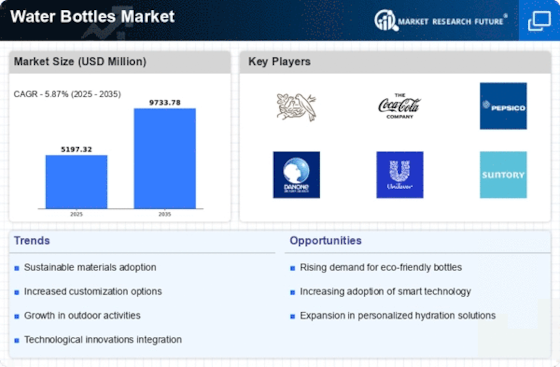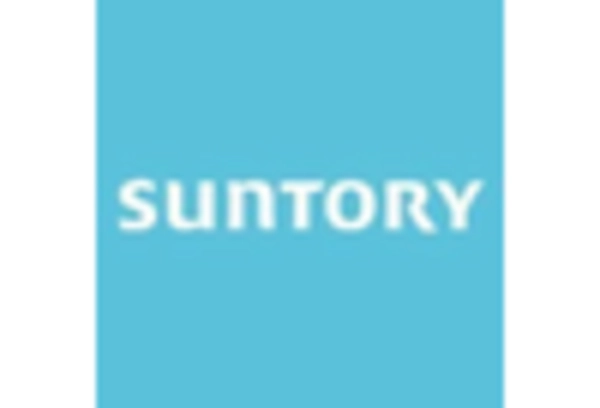Market Share
Water Bottle Market Share Analysis
The water bottle market is experiencing dynamic shifts in consumer preferences and industry trends, reflecting a growing emphasis on sustainability, health consciousness, and convenience. One notable trend in the water bottle market is the rising demand for eco-friendly and reusable bottles. With increased awareness of environmental issues, consumers are actively seeking alternatives to single-use plastic bottles. Reusable water bottles made from materials like stainless steel, glass, or BPA-free plastics have gained popularity, aligning with the global push for reducing plastic waste and promoting sustainable practices.
Health and wellness considerations play a significant role in shaping market trends within the water bottle industry. Consumers are increasingly opting for bottles that support their active lifestyles, such as those designed for sports and outdoor activities. Features like built-in filtration systems, fruit-infuser compartments, and measurement markers for tracking water intake contribute to the appeal of water bottles as essential accessories for health-conscious individuals. As fitness trends continue to influence consumer behavior, the water bottle market adapts to meet the evolving needs of those prioritizing hydration as an integral part of their well-being.
Furthermore, the customization and personalization of water bottles have become prevalent trends. Consumers seek bottles that align with their style, preferences, and individuality. This has led to the popularity of customizable options, allowing customers to choose colors, designs, and even add personalized engravings or labels. Brands are capitalizing on this trend by offering a wide range of aesthetic options, fostering a sense of ownership and connection between consumers and their chosen water bottles.
Smart technology integration is another noteworthy trend shaping the water bottle market. Smart water bottles equipped with features like hydration reminders, temperature control, and Bluetooth connectivity to fitness apps are gaining traction. These innovations cater to the tech-savvy consumer looking for seamless ways to monitor and enhance their hydration habits. The integration of technology not only adds a functional aspect to water bottles but also positions them as smart accessories that complement the connected lifestyle of today's consumers.
The rise of sustainable packaging practices is influencing the water bottle market, extending beyond the bottles themselves. Brands are adopting eco-friendly packaging materials and reducing excess packaging to minimize their environmental footprint. This shift aligns with consumer expectations for socially responsible and sustainable business practices. As awareness of the environmental impact of packaging materials grows, consumers are likely to favor brands that prioritize eco-conscious packaging solutions.
In response to the increasing demand for on-the-go hydration solutions, compact and collapsible water bottles have gained popularity. These innovative designs cater to consumers seeking convenience and portability in their daily lives. Collapsible bottles, in particular, offer a space-saving solution for those with active lifestyles or limited storage space, contributing to the overall versatility of water bottles in meeting diverse consumer needs.
Collaborations and limited-edition releases are emerging as effective strategies for brands in the water bottle market. Partnering with influencers, designers, or other brands creates unique and exclusive offerings that attract attention and drive consumer engagement. Limited-edition releases generate a sense of urgency and exclusivity, prompting consumers to make purchasing decisions based on the perceived rarity and uniqueness of these products.


















Leave a Comment